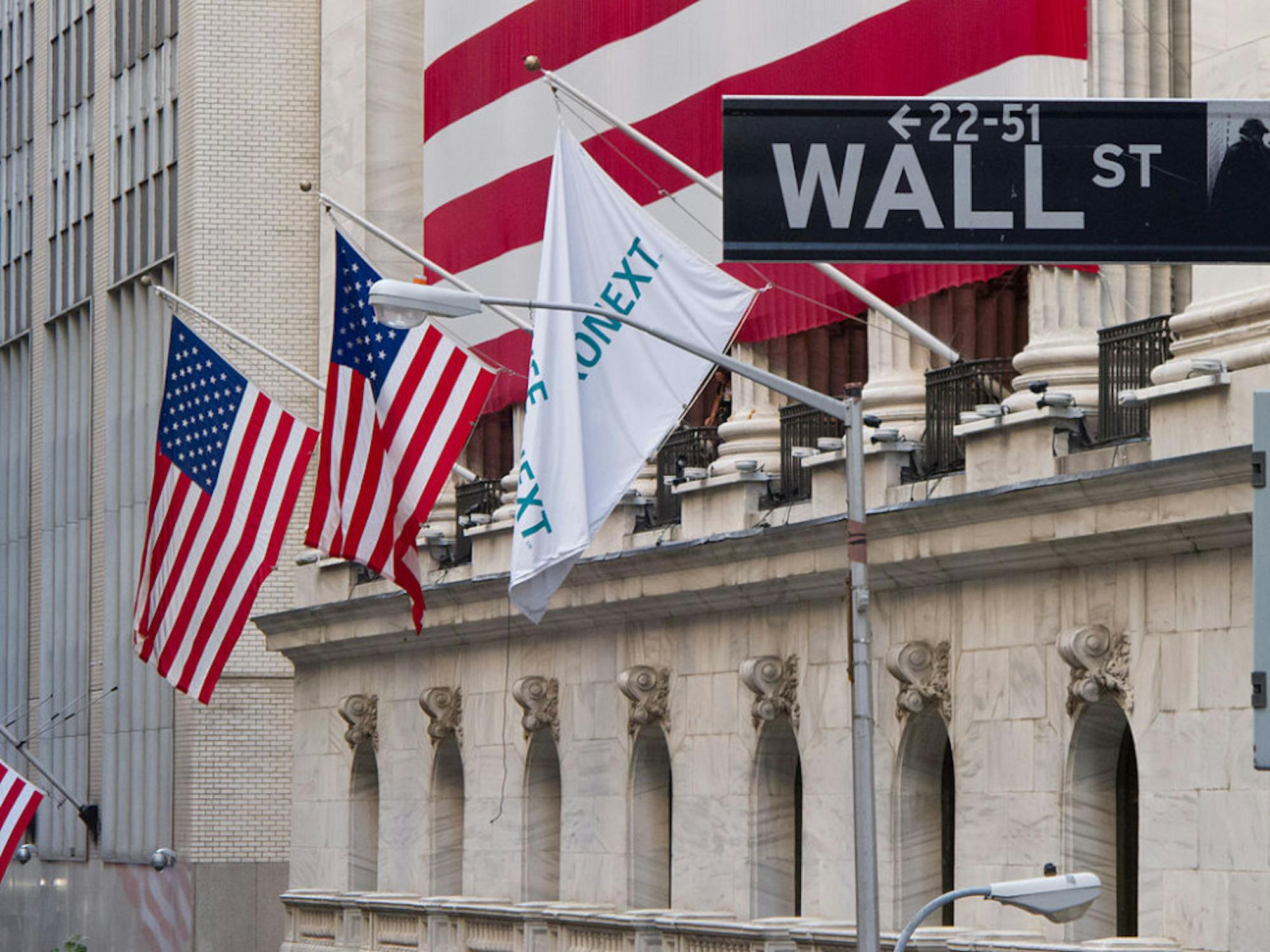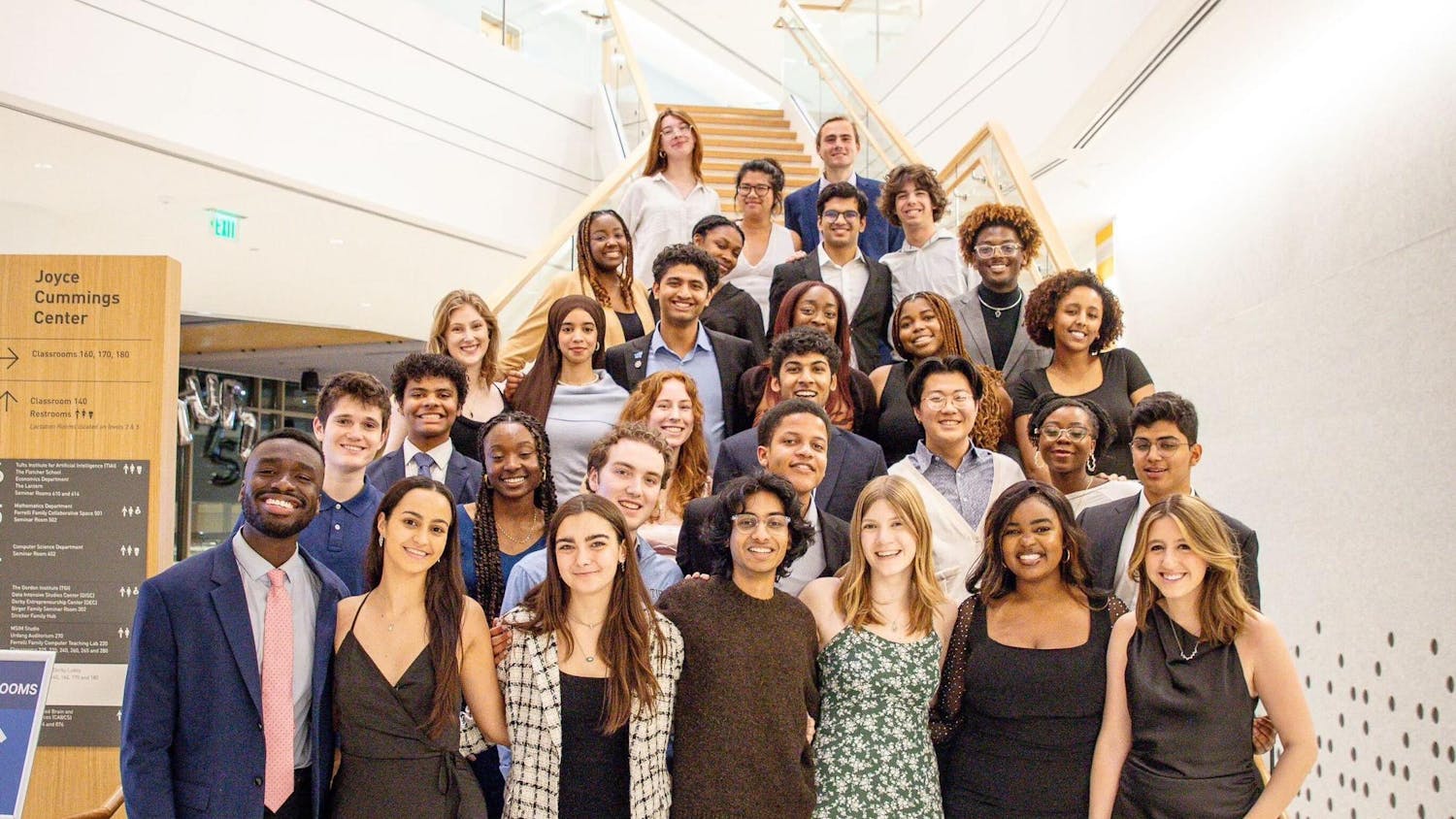Several Tufts students reported profiting off of investments made in multiple short squeeze stocks last week, including GameStop and AMC, during what was an especially unusual week on Wall Street.
One month ago, GameStop’s stock was at a modest price of $17.25 a share. Last week, however, the stock price skyrocketed to anall-time highof $483 on Jan. 28, before plunging back to under $100 earlier this week.
The lead-up to this monumental surge in share prices began several weeks ago, when the popular subredditr/WallStreetBets — a forum consisting of a community of largely retail investors that exchange in both financial chatter and their fair share of memes — found out that ahandful of large hedge funds were in the process of shorting the stocks of several struggling retail companies, including GameStop and AMC.
A short happens when an investor — in this case, the hedge funds — bets against a stock, predicting that it will go down. The investor does this by buying shares in a company and then selling them, all while agreeing to buy the shares back at some point in the future. If the stock price then falls, which they assume it will, the investor can buy the shares back for a fraction of their original price and pocket the profits.
However, if the stock price in a shorted company increases significantly, the investor would be forced to buy back their shares at a higher price, thus losing money.
As more and more investors rush to buy back their shares in order to cover their losses, the price of the stock shoots up even further. This is known as a short squeeze, and it is what allowed for GameStop’s stock price to rise to unforeseen levels.
By this logic, an investor would need a fair level of confidence that the price of a shorted stock would go down in order to justify taking on such a risk. In the past several years, GameStop — a once-popular video game retailer — has struggled to compete with the likes of Amazon, an effect that has only been exacerbated by the COVID-19 pandemic.
According to Christopher McHugh, an adjunct lecturer in the economics department, several hedge funds predicted that retail companies such as GameStop would eventually fail.
“[The stock] should go to zero … and then the hedge funds all crowd in to short them,” McHugh said. “And they should be right. By all kinds of logic, the stock shouldn’t go way up.”
But in mid-January, the situation began to change unpredictably for the hedge funds that had shorted several stocks. Sean Kumar, vice president of the Tufts Trading Fund, first heard about the potential for a GameStop short squeeze from the r/WallStreetBets subreddit on Jan. 19.
“At the time, I was browsing the subreddit … and I recall seeing a lot of … information about the potential for a GameStop short squeeze,” Kumar, a senior, said. “Nothing on that board is investment advice, so I took it upon myself to do some more research about if I could lend any credence to these claims.”
After making his initial assessment, Kumar decided to place his investment in GameStop around the time that it hit $58 a share on Jan. 22. At the same time, countless other small investors across the country were also deciding to purchase shares in GameStop.
The sudden push from small investors to buy shares in GameStop was not necessarily tied to immediate changes within the video game company. Rather, there was a general consensus between members of r/WallStreetBets and across the internet that by inflating the stock price of these often-nostalgic retail companies, they were ‘standing up’ to the hedge funds that had shorted the stocks.
Kian Golshan was one of those small investors. A senior studying international relations and entrepreneurship, Golshan also heard of the potential short squeezes from r/WallStreetBets and made a profit off of his stake in GameStop and AMC.
“I took a few days of time to make sure I really understood what was happening with the short squeeze, and that’s what prompted me to then be comfortable enough to purchase shares,” Golshan said. “Nothing crazy. It’s pretty outside my risk profile, and if anything, it just felt cool to be a part of this moment in time.”
What ensued was an unpredictable volatility in the market that quickly became a national story. From Jan. 22 to Jan. 26, the stock rose from about $64 a share to $146 a share. Then, on Jan. 27, share prices soared to $380 before reaching their all-time high on Jan. 28.
As the stock prices went up, several small investors made small fortunes. Alternatively, the hedge funds that had bet against the shorted stocks reportedlylost billions. One major fund, Melvin Capital,lost more than 50% in January as a result.
Kumar shared that he had made a return of over 500% on his initial investment from the rise. He also said that he imagines that the losses on Wall Street may lead to changes in the behavior of hedge funds.
“I think that there’s going to need to be a reevaluation of how hedge funds manage their risk and how they can avoid similar steps like this in the future,” Kumar said.
On Jan. 28, Robinhood, a popular brokerage app among small investors, temporarily blocked users from purchasing new shares in certain stocks, including GameStop. The demand for GameStop stock purchases had become so significant that Robinhood shut down the buying of the stock on their app,citing volatility in the market. The controversial move drew outrage from a swath of the public. Among the outraged werepoliticians from both sides of the aisle, including Rep. Alexandria Ocasio-Cortez and Sen. Ted Cruz.
McHugh also said he believes that Robinhood and other brokerage firms should refrain from restricting users on their desired purchases.
“They shouldn’t have restricted,” McHugh said. “I think to regulate it just hurts those who want to come in and give it a try.”
Kumar said he believes that Robinhood decided to halt the purchase of new shares in certain stocks because of a liquidity problem. His claims arebacked by several reporters, although Robinhood has denied that there was a liquidity problem.
Shaikat Islam, a computer science major who invested in the highly volatile cryptocurrency DogeCoin last week, advised that new investors remain cautious when considering high-risk stocks.
“It’s a good way to make money, but it’s also a better way to lose it,” Islam, a senior, said.
Kumar shared similar remarks, adding that he believes that Americans, Tufts students included, should place increased value in understanding financial systems.
“A lot of people have an impression that getting into the market to make money can be that money is made overnight … but the best way to build your wealth, and to build financial stability is to invest for the long term,” he said. “I believe that most Americans should work hard on making financial literacy a priority.”






